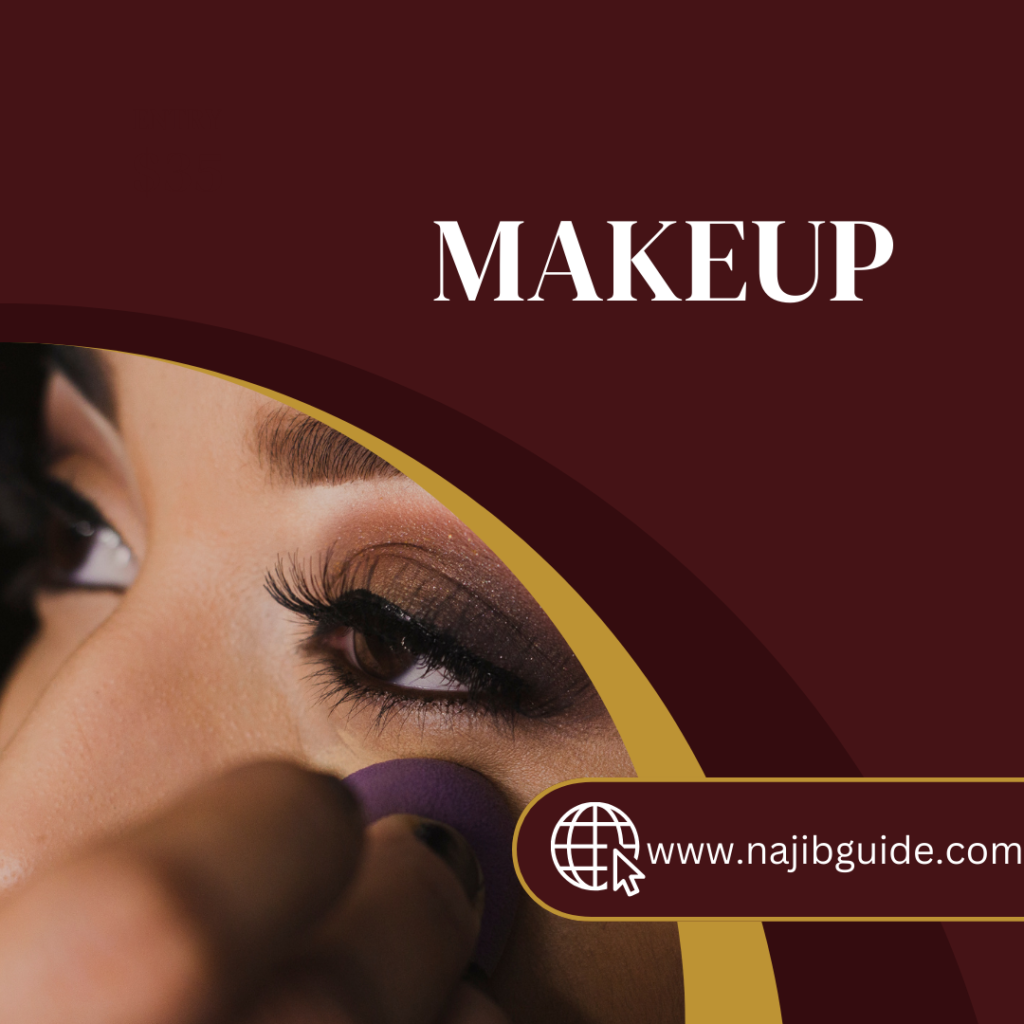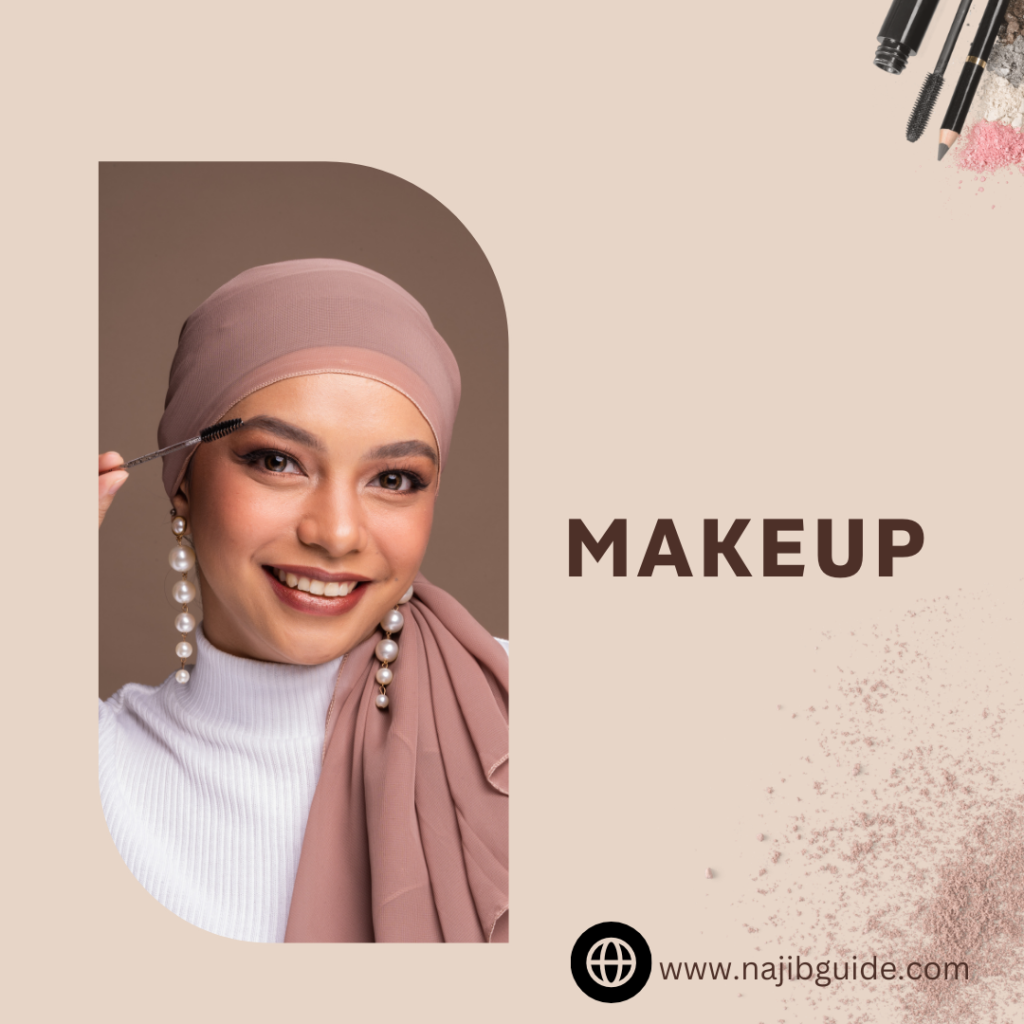Introduction
Makeup is more than just a collection of cosmetic products it is a powerful medium that influences culture, enhances confidence, and transforms perceptions. Over the years, makeup has evolved into a symbol of self-expression, creativity, and identity. In this article, we delve into the profound impact of makeup on society, exploring its historical roots, psychological effects, and role in shaping beauty standards worldwide.

The History of Makeup: From Ancient Rituals to Modern Trends
The journey of make-up dates back thousands of years, with its origins rooted in rituals, traditions, and societal norms. In ancient Egypt, kohl was used to line the eyes, not only as an aesthetic enhancement but also as protection against the sun and a symbol of divine connection. Similarly, the Greeks and Romans used powders to achieve pale complexions, signifying wealth and status.
As centuries passed, make-up trends evolved alongside societal changes. The Renaissance era saw vibrant rouges and lip tints, while the Victorian age emphasized modesty and natural beauty. The 20th century ushered in a bold and experimental phase, with icons like Marilyn Monroe and Audrey Hepburn defining timeless looks. Today, makeup trends are influenced by global movements, with diversity and inclusivity taking center stage.
The Psychological Benefits of Makeup
Enhancing Confidence and Self-Image
One of the most significant impacts of make-up lies in its ability to boost confidence and improve self-esteem. By allowing individuals to highlight their best features and conceal imperfections, make-up empowers people to present themselves as their best selves. This transformation can be particularly impactful in professional settings, social events, or personal milestones.
Moreover, makeup acts as a form of self-care, providing individuals with a creative outlet. The process of applying makeup can be therapeutic, offering a moment of calm and self-reflection amidst a busy day.
Shaping First Impressions
In a world where first impressions matter, make-up plays a critical role in shaping perceptions. Studies have shown that individuals who wear makeup are often perceived as more polished, competent, and approachable. This perception can influence relationships, career opportunities, and social interactions, highlighting the subtle yet profound effects of makeup.
The Role of Makeup in Modern Society
Social Media and Beauty Trends
Social media platforms like Instagram, TikTok, and YouTube have revolutionized the make-up industry. Beauty influencers and make-up artists have become household names, offering tutorials, product reviews, and trend inspiration to millions. This digital beauty culture has democratized access to knowledge, making expert techniques and product recommendations available to everyone.
However, the rise of social media has also introduced challenges, such as unrealistic beauty standards and pressure to achieve perfection. Filters, editing tools, and curated content often create a distorted reality, impacting self-esteem and body image.
Gender Inclusivity and Diversity
The make-up industry has made significant strides in embracing diversity and inclusivity. Once considered a female-dominated space, makeup is now celebrated as a form of self-expression for all genders. Campaigns featuring men, non-binary individuals, and people of all ethnicities have challenged traditional norms, paving the way for a more accepting and inclusive beauty culture.
Brands like Fenty Beauty and MAC have set new standards by offering extensive shade ranges and inclusive marketing strategies. This shift not only reflects societal progress but also reaffirms the universal appeal of make-up.
The Economic Impact of Makeup
The make-up industry is a global powerhouse, generating billions of dollars annually. From luxury brands to drugstore products, the diversity of offerings caters to a wide range of consumers. E-commerce platforms and subscription boxes have further expanded the market, making makeup accessible to even the most remote locations.
Additionally, the industry provides employment opportunities across various sectors, including manufacturing, retail, artistry, and content creation. Independent beauty brands and entrepreneurs have also flourished, leveraging platforms like Etsy and Instagram to reach niche audiences.
Challenges and Ethical Considerations in the Makeup Industry
Sustainability and Environmental Impact
As consumer awareness grows, the make-up industry faces increasing scrutiny regarding its environmental footprint. Packaging waste, plastic microbeads, and non-sustainable ingredients contribute to ecological harm. Many brands are now adopting sustainable practices, such as biodegradable packaging, refillable containers, and cruelty-free formulations.
Health and Safety Concerns
The safety of makeup products is a critical concern for consumers. Allergies, skin sensitivities, and exposure to harmful chemicals are risks that must be addressed. Regulatory bodies and certifications play a crucial role in ensuring that products meet safety standards. Transparency in ingredient labeling is essential to building trust with consumers.
The Pressure to Conform
While makeup is a tool of empowerment, it can also create pressure to conform to societal beauty standards. Advertising campaigns and influencer content often promote unattainable ideals, leading to insecurities and feelings of inadequacy. Educating consumers about realistic expectations and promoting authenticity can help mitigate these effects.
The Future of Makeup: Innovation and Inclusivity
The future of makeup is shaped by technological advancements, changing consumer preferences, and a commitment to inclusivity. Emerging trends include personalized beauty solutions powered by AI, virtual try-on tools, and hybrid products that combine skincare and cosmetics. The focus on sustainability and ethical practices is likely to intensify, driving innovation in packaging, formulations, and sourcing.
As the industry evolves, it must continue to celebrate diversity and empower individuals to embrace their unique beauty. By prioritizing authenticity, inclusivity, and sustainability, makeup can remain a powerful force for good.
Conclusion
Makeup is far more than a superficial accessory—it is a dynamic and transformative tool that impacts every facet of our lives. Its influence is undeniable, from boosting confidence and enhancing creativity to challenging societal norms and driving economic growth. However, as we celebrate the benefits of makeup, we must also address its challenges, such as environmental sustainability and unrealistic beauty standards. The makeup industry can shape a more inclusive and authentic future, where beauty is defined by individuality and self-expression. By embracing innovation and promoting ethical practices, we can ensure that makeup continues to empower and inspire generations to come.


